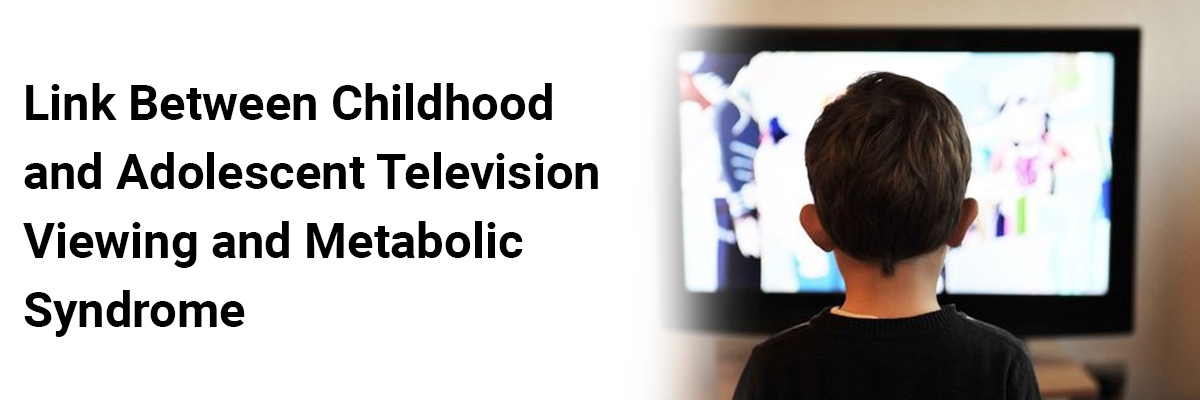
 IJCP Editorial Team
IJCP Editorial Team
Link Between Viewing and Metabolic Syndrome Childhood and Adolescent Television
Sedentary habits and increased screen time may have adverse metabolic effects.
A new study was based on the hypothesis that childhood television viewing time is associated with metabolic syndrome in middle age. This study investigated the potential link between childhood television viewing habits and the risk of developing metabolic syndrome at 45 years of age.
The study examined a population-based birth cohort from Dunedin, New Zealand – born from 1972-1973. Television viewing times were recorded at various ages, and metabolic syndrome indicators were measured at age 45.
The results showed that increased television viewing between ages 5 and 15 was associated with a higher likelihood of metabolic syndrome at 45 years, even after adjusting for factors like sex, socioeconomic status, and body mass index (BMI) at age 5. The association persisted even after accounting for adult television viewing. Further, childhood television watching correlated with lower cardiorespiratory fitness and higher BMI at 45 years.
The findings suggest that reducing screen time during childhood and adolescence may have long-lasting health benefits – confirming a prolonged connection between childhood television habits and mid-adulthood metabolic syndrome risk. The results underscore the negative impact of increased screen time on health across different life stages, emphasizing the potential advantages of interventions aimed at reducing screen-based activities like television viewing among young people.
Source: MacDonell N, Hancox RJ. Pediatrics. 2023 Jul 24.

IJCP Editorial Team
Comprising seasoned professionals and experts from the medical field, the IJCP editorial team is dedicated to delivering timely and accurate content and thriving to provide attention-grabbing information for the readers. What sets them apart are their diverse expertise, spanning academia, research, and clinical practice, and their dedication to upholding the highest standards of quality and integrity. With a wealth of experience and a commitment to excellence, the IJCP editorial team strives to provide valuable perspectives, the latest trends, and in-depth analyses across various medical domains, all in a way that keeps you interested and engaged.




















Please login to comment on this article